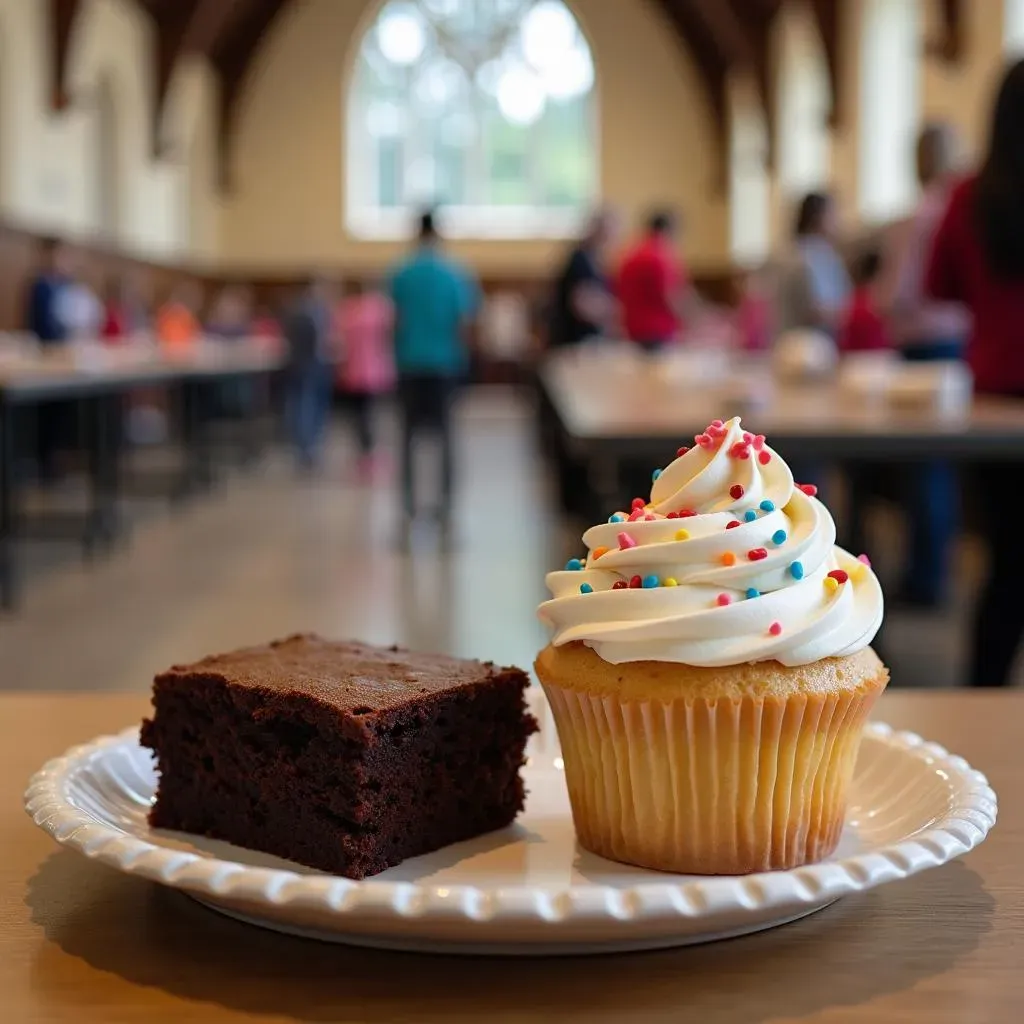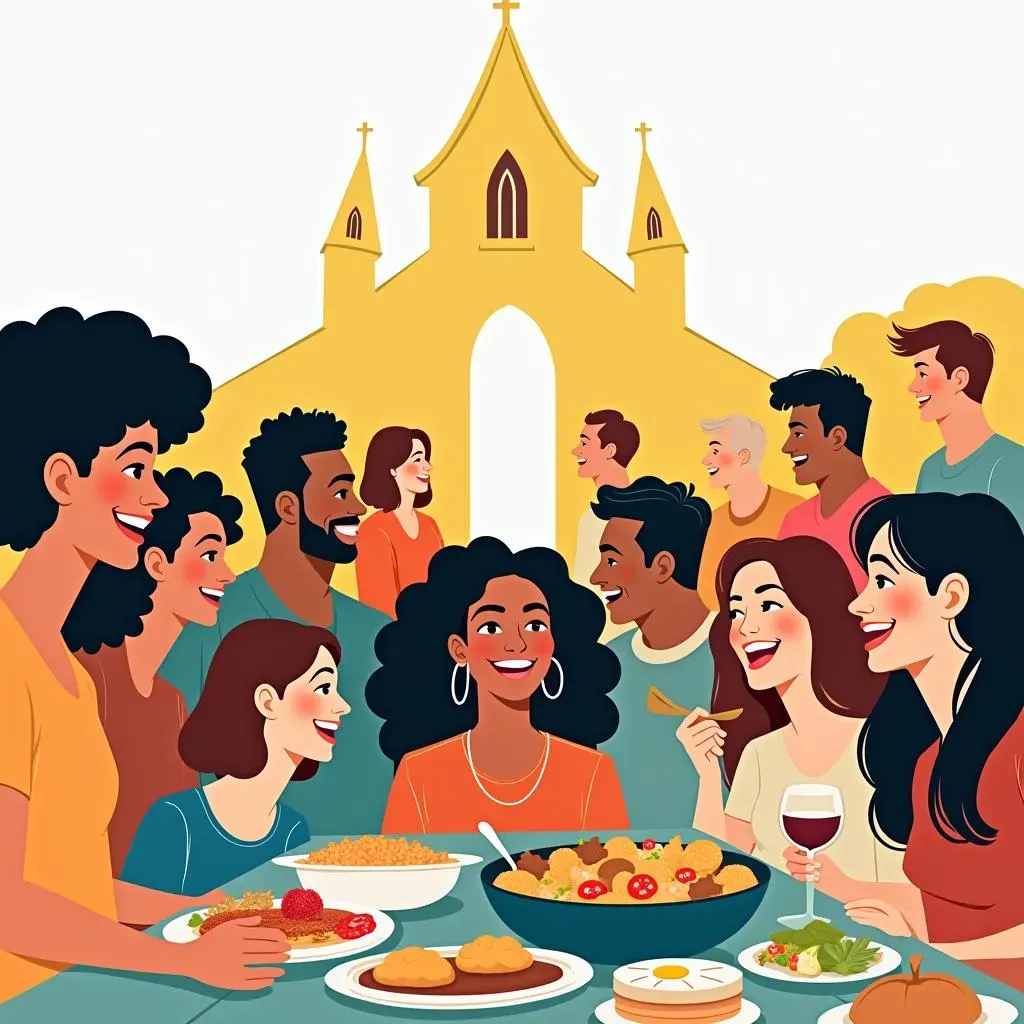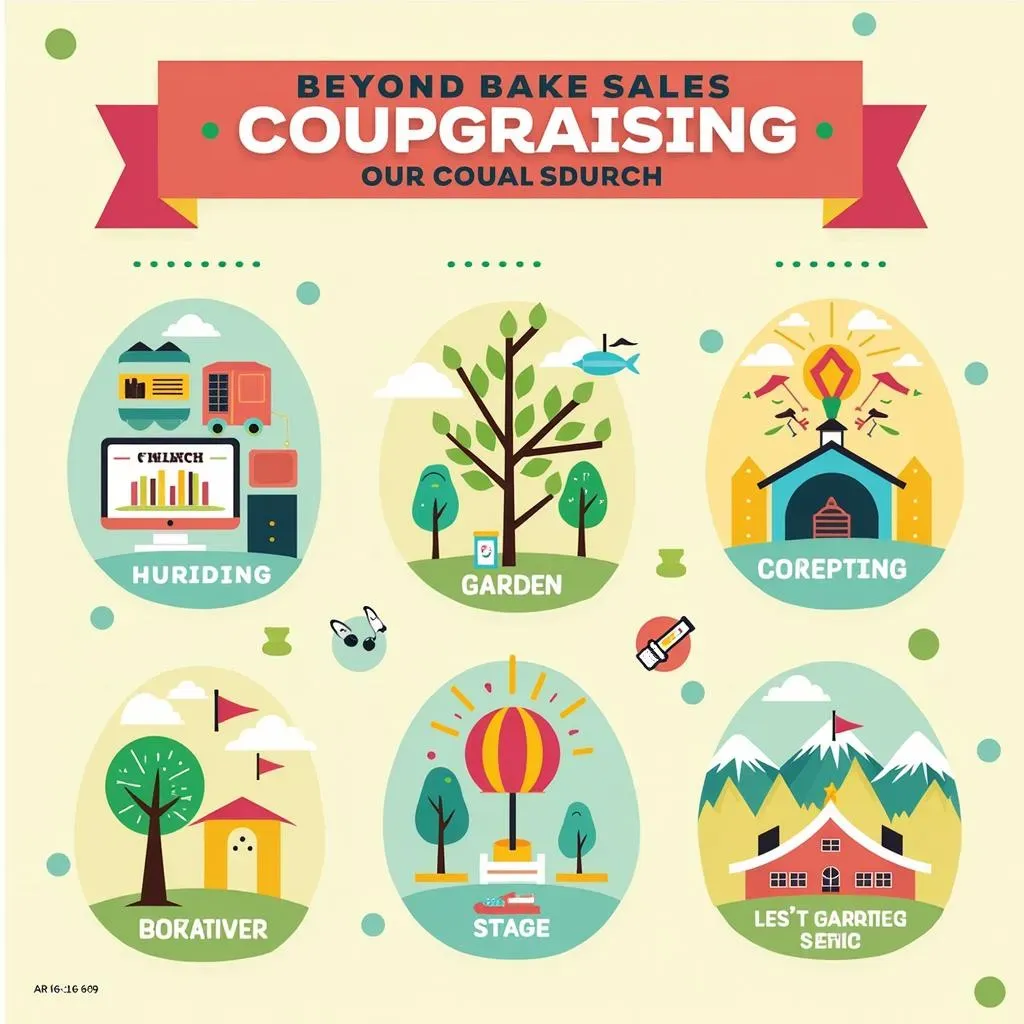Table of Contents
Let's be honest. Mention "church fundraiser" and what comes to mind? Probably a spaghetti dinner where you pay twenty bucks for pasta you could make at home for three, or maybe another bake sale overflowing with sugar cookies. While these have their place, sometimes they feel less like fundraising powerhouses and more like obligatory social events. We've all seen the energy drain, the same few people doing all the work, and the results... well, they're often just enough to keep the lights on, maybe.
Why Those Old Bake Sales Might Need an Update

Why Those Old Bake Sales Might Need an Update
The Familiar Sigh at Another Bake Sale Request
Let's talk about the classic church bake sale. It feels as traditional as hymns and potlucks, right? Someone sends out an email asking for cookie donations, a few dedicated bakers whip up their specialties, and folks line up after service, maybe out of genuine craving, maybe just to be supportive. But honestly, how much money does a table full of rice krispie treats and slightly-too-dry brownies really bring in after factoring in ingredients? And consider the effort: multiple people baking for hours, setting up, selling, cleaning up, all for what often amounts to a few hundred dollars, maybe. It's the definition of high effort, often low reward, and it can burn out the same volunteers who consistently step up.
Plus, in an age where folks are watching their sugar intake or have specific dietary needs, a table piled high with conventional baked goods doesn't always hit the mark. You see people politely decline, or buy one small item out of obligation. It's not exactly generating excitement or tapping into a broader base of potential givers. Focusing solely on these traditional methods can make finding good church fundraisers feel like a constant uphill battle, relying on nostalgia more than actual financial strategy or broad appeal.
Are We Just Doing This Because We Always Have?
It's a fair question. Many traditional church fundraising ideas, like the aforementioned bake sale or the ubiquitous spaghetti dinner, persist because they're familiar and relatively simple to organize at a basic level. There's a comfort in the routine. However, familiarity can breed indifference, both from potential donors and from the volunteers who feel like they're on a fundraising treadmill. These events often preach to the choir, relying heavily on the generosity of regular attendees who are already giving through tithes and offerings. They don't always attract new people or tap into different skill sets and resources within the congregation or the wider community.
The world has changed. People have busy schedules, different ways they prefer to contribute, and expectations shaped by successful fundraising efforts they see elsewhere. Sticking solely to methods designed for a different era means potentially leaving significant money and engagement on the table. It's time to examine if these long-standing events are still the most effective or engaging ways to pursue good church fundraisers, or if they're just comfortable habits that aren't serving the church's financial needs as well as they could.
Here's a quick comparison of traditional vs. potentially more effective approaches:
Traditional Method Example | Potential Drawbacks | Alternative Focus |
|---|---|---|
Bake Sale | Low profit margin, volunteer burnout, limited appeal | Event with multiple vendors/activities, online sales, skill-based service auction |
Spaghetti Dinner | High food costs, labor intensive, competes with local restaurants | Ticketed event with unique experience (e.g., themed night, local chef), crowdfunding campaign, partnership with a business |
Tried and True Good Church Fundraisers (And Some Fresh Ideas)

Tried and True Good Church Fundraisers (And Some Fresh Ideas)
Revisiting the Classics with a Twist
so we just ragged on bake sales and spaghetti dinners a bit. But that doesn't mean every traditional idea is dead in the water. Many classic good church fundraisers can still work, provided you inject some creativity and strategic thinking. Think about the potluck: everyone brings a dish, it's low cost for the church, and fosters fellowship. Instead of just "come eat," turn it into a themed international dinner night where people sign up to bring dishes from specific countries, and maybe charge a slightly higher ticket price for the unique experience. Or the car wash – instead of just scrubbing cars in the parking lot, partner with a local detailing service for a percentage or offer tiered service packages (basic wash, wash and wax, interior clean) with different price points. The key is taking the familiar structure and adding value, making it more appealing to participants and potentially more profitable.
Another example is the rummage sale. Churches have been doing these forever. Piles of donated goods, sorted by tireless volunteers, sold for pennies on the dollar. It's a ton of work for limited return, and often you're left with a mountain of unsellable items. What if, instead, you focused on a specific type of item? A "gently used book fair" or a "vintage clothing swap" or an "electronics recycling drive with a small donation suggested." This narrows the scope, potentially attracts a more specific crowd willing to pay a bit more, and reduces the sheer volume of stuff to deal with. It's about refining the concept to make it more efficient and targeted for good church fundraisers.
Exploring New Avenues for Giving
Moving beyond the typical, let's consider some fresh takes on good church fundraisers that leverage modern tools and different kinds of community engagement. Online crowdfunding campaigns are incredibly effective for specific, tangible goals – think "fund a new roof," "send youth to camp," or "support a specific mission project." They allow people to donate easily from anywhere and share the campaign widely through social media. This taps into networks far beyond your immediate congregation.
Consider a skill-based auction. Members or people in the community donate services rather than physical items. Think gardening help, tutoring, financial planning advice, a home-cooked meal delivered, or even a weekend cabin stay. People often prefer to give their time or expertise, and others are willing to pay good money for these unique offerings. It's less about buying stuff you don't need and more about supporting the church by acquiring something valuable. This type of event can feel less transactional and more like a community exchange, making for truly good church fundraisers.
Here are a few ideas to get you thinking:
- Host a "Minute-to-Win-It" game night with teams paying to compete.
- Organize a themed 5k run/walk and partner with local businesses for sponsorships.
- Create a church cookbook featuring recipes from members, sold online and in person.
- Offer a "Parents' Night Out" service where church volunteers watch kids for a few hours for a fee.
- Run an online or in-person silent auction featuring donated experiences or higher-value items.
Planning Your Next Good Church Fundraiser: Beyond the Spaghetti Dinner

Planning Your Next Good Church Fundraiser: Beyond the Spaghetti Dinner
Start with the "Why" and "Who"
Before you even think about themes or ticket prices for your good church fundraisers, pump the brakes and ask the fundamental questions. Why are you doing this? Is it for a specific project, like fixing the leaky roof, or a broader goal, like supporting youth programs? Getting crystal clear on the objective helps focus everyone's energy and makes it easier to communicate the need to potential donors. People are more likely to give when they understand exactly where their money is going and the impact it will have. Also, who is this event for? Just the congregation? The whole community? Knowing your audience helps you pick an event that resonates with them and meets their interests, not just the planning committee's.
Assemble Your Dream Team and Brainstorm Widely
you know your goal and your audience. Now, who's going to make this happen? Don't just tap the usual suspects who end up doing everything. Look around the congregation for people with different skills – graphic designers for promotion, accountants for budgeting, social media gurus, folks who are just plain good at organizing or talking to people. Form a diverse committee. When it comes to brainstorming ideas for good church fundraisers, encourage everyone to throw out anything, no matter how wild it sounds. Sometimes the craziest ideas spark the most innovative and successful concepts. Don't immediately shoot things down; explore the possibilities. You might find a unique twist on a familiar idea or discover something entirely new that fits your church community perfectly.
Here are some questions to kick off your brainstorming:
- What unique talents or resources does our congregation have? (e.g., great cooks, musicians, people with connections to businesses)
- What are people in our community interested in doing? (e.g., outdoor activities, learning new skills, supporting local artists)
- What problems could a fundraiser help solve for our church or community?
- How can we make this event fun and engaging, not just another ask for money?
- What haven't we tried before that might appeal to younger members or new families?
Crunch the Numbers and Get the Word Out
Alright, you've got a solid idea or two for good church fundraisers. Now it's time to get realistic. Develop a detailed budget. What are the estimated costs – venue rental (if needed), food, supplies, marketing, permits? Be thorough. Then, project your potential revenue. How many tickets do you expect to sell at what price? How much might you make from additional sales (like a silent auction or merchandise)? Understanding the potential profit margin is crucial. An event that costs more to put on than it brings in isn't a fundraiser; it's a party with a deficit. Once the plan and budget are solid, promote the heck out of it! Use multiple channels: church bulletin, email lists, social media, local community boards, even press releases for bigger events. Make sure the message is clear, exciting, and explains the "why" behind the event.
Measuring Success: It's More Than Just the Offering Plate

Measuring Success: It's More Than Just the Offering Plate
Measuring Success: It's More Than Just the Offering Plate
the event wrapped up, the leftovers are packed away, and the volunteers are finally getting some rest. Now comes the moment of truth: measuring success. If your only metric is the final number deposited in the bank, you're missing a huge piece of the picture. While financial gain is obviously a primary goal of good church fundraisers, true success encompasses so much more. Did the event bring new people into the church doors? Did it strengthen bonds within the congregation? Did people leave feeling positive and connected, even if they didn't spend a fortune? Was it a chaotic mess that burned out your core team, or did it run smoothly and energize volunteers? These intangible outcomes – community building, volunteer engagement, positive visibility – are just as, if not more, valuable in the long run for the health and vibrancy of your church than the cash total alone. A fundraiser that makes a decent profit but leaves everyone exhausted and vowing never to help again isn't truly successful.
More Than Just Money: The Lasting Impact of Good Fundraisers
So, we've circled back to the idea that good church fundraisers aren't just about counting the dollars at the end of the night. They're opportunities – sometimes messy, sometimes surprisingly effective – to bring people together, tap into overlooked talents, and remind everyone why they're part of the community in the first place. Moving past the predictable requires effort, maybe a few failed experiments, but the potential payoff in energy and engagement often outweighs the risk. The real win isn't just hitting a financial target; it's seeing members connect, newcomers feel welcome, and a genuine sense of shared purpose emerge from the organized chaos. It's about building something stronger than a bank balance.
